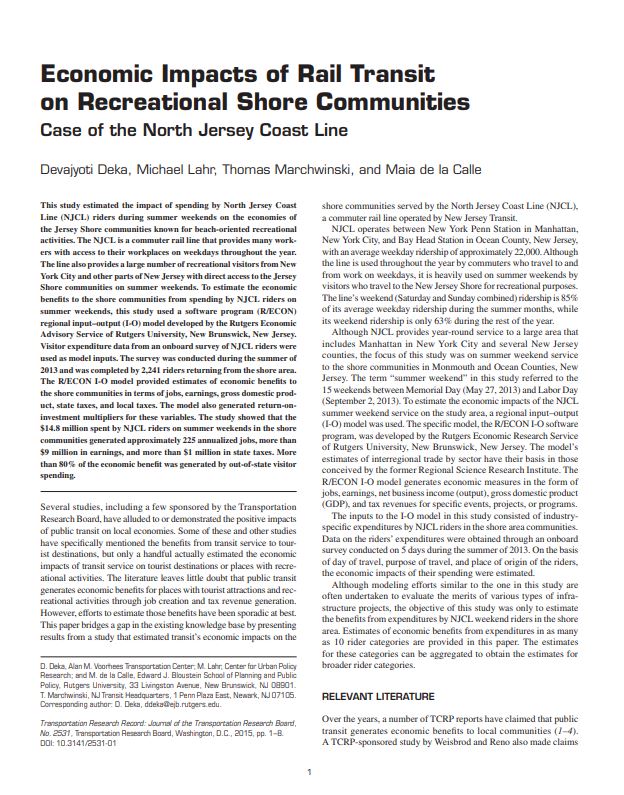ABSTRACT:
This study estimated the impact of spending by North Jersey Coast Line (NJCL) riders during summer weekends on the economies of the Jersey Shore communities known for beach-oriented recreational activities. The NJCL is a commuter rail line that provides many workers with access to their workplaces on weekdays throughout the year. The line also provides a large number of recreational visitors from New York City and other parts of New Jersey with direct access to the Jersey Shore communities on summer weekends. To estimate the economic benefits to the shore communities from spending by NJCL riders on summer weekends, this study used a software program (R/ECON) regional input–output (I-O) model developed by the Rutgers Economic Advisory Service of Rutgers University, New Brunswick, New Jersey. Visitor expenditure data from an onboard survey of NJCL riders were used as model inputs. The survey was conducted during the summer of 2013 and was completed by 2,241 riders returning from the shore area. The R/ECON I-O model provided estimates of economic benefits to the shore communities in terms of jobs, earnings, gross domestic product, state taxes, and local taxes. The model also generated return-on investment multipliers for these variables. The study showed that the $14.8 million spent by NJCL riders on summer weekends in the shore communities generated approximately 225 annualized jobs, more than $ 9 million in earnings, and more than $1 million in state taxes. More than 80% of the economic benefit was generated by out-of-state visitor spending.
